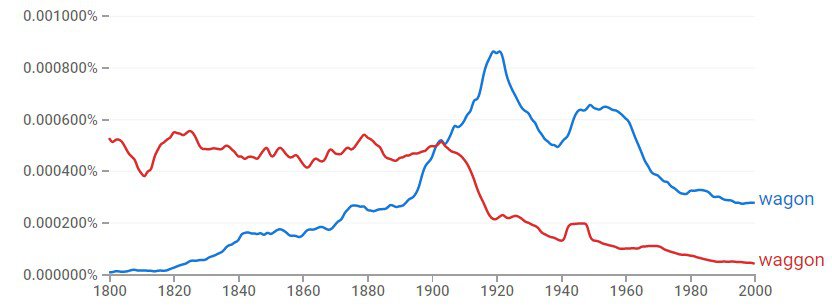Wagon and waggon are different spellings of the same word meaning, among other things, a sturdy four-wheeled vehicle for transporting things. Waggon was preferred in British English until a century ago,1 and it still appears occasionally, but it is fast becoming archaic. In this century, the shorter one is preferred in all main varieties of English.
This ngram, which graphs the use of wagon and waggon in a large number of British texts published from 1800 to 2019, shows waggon‘s decline and wagon‘s rise:

Examples
Wagon, as used below, is standard in American English:
Paddle shifters in a station wagon would seem at first glance about as necessary as a roof rack on a convertible. [Charleston Post Courier]
Becoming frightened while on Meyer Street, a horse attached to a milk wagon ran away while the driver was delivering milk. [Arizona Daily Star]
And while waggon used to be the standard spelling in British English, wagon is now far more common. For example, these major British news publications use it:
Toyota hopes to capitalise on the recent uptick with the unveiling of a wagon-type version of its popular Prius hybrid hatchback at the Detroit car show next Monday. [Financial Times]
The sooner you fall off whichever wagon you tipsily clambered aboard at the strike of midnight, the sooner you can begin to ring in the real changes. [Guardian]
You guess almost from the outset that the recovering addicts are going to fall off the wagon. [Telegraph]